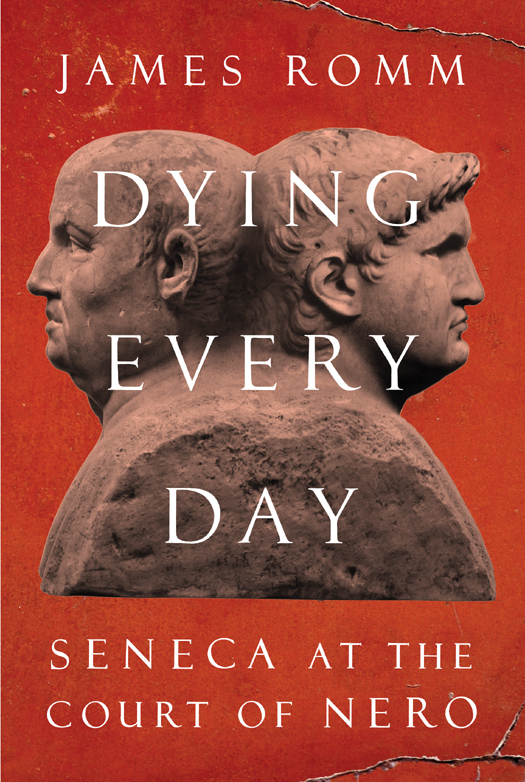
Dying Every Day
Seneca at the Court of Nero
کتاب های مرتبط
- اطلاعات
- نقد و بررسی
- دیدگاه کاربران
نقد و بررسی

January 1, 2014
There were many sides to the great Roman philosopher and writer Seneca. Romm (Classics/Bard Coll.; Ghost on the Throne: The Death of Alexander the Great and the War for Crown and Empire, 2011) explores his contrasting, even conflicting, skills in surviving at the dangerous court of Nero. Seneca was a sage who preached a simple, studious life while amassing wealth and power in Nero's court. Romm, who teaches Greek literature and language, combed Seneca's profuse writings in an attempt to identify the true man. Was he a moral philosopher of the Stoic school or a greedy businessman and corrupt power monger? Are his tracts really political treatises, or were they propaganda, expounding his ideals or improving his image? The source material is vast, and the author seems to have explored it all: the Annals of Tacitus, the anonymous play Octavia and Cassius Dio's Roman History, along with writings by Suetonius, Plutarch and many others. Julia Agrippina the Younger recalled Seneca from Corsican exile to act as a tutor to her son, Nero, who she intended would succeed Emperor Claudius. Working with Nero must have been exceedingly unpleasant. He was a petulant, spoiled megalomaniacal brat likely responsible for Claudius' death and undoubtedly responsible for his brother's and mother's deaths and countless more. Seneca certainly failed to instill Stoic values in Nero, and he had little luck controlling him. He was the speechwriter, spin doctor, and image maker and became a wealthy landowner thanks to Nero's gifts. "As he himself implied in one of his several apologias," writes the author, "he was not equal to the best, but better than the bad." The task of determining Seneca's true nature is daunting, but the wide body of information available to Romm enables him to give us tantalizing but ambiguous clues to the man's mind. Like any good philosopher, he only shows us the questions and leaves readers to figure out the answers.
COPYRIGHT(2014) Kirkus Reviews, ALL RIGHTS RESERVED.

February 1, 2014
Was Roman philosopher Seneca the Younger an exemplar of Stoic virtue who, pulled into politics in the service of Emperor Nero, did his best to modulate the young despot's cruelty? Or was he a shrewd manipulator whose ethical treatises were just a cynical attempt to restore a reputation sullied by his complicity in Nero's cruel and decadent court? Tacitus, who wrote a lot about Seneca, seems to have had trouble making up his mind. Romm suggests that we might bring together these conflicting portraits by understanding Seneca as a serious thinker who suffered from passivity and obsequiousness, and had the misfortune to live at a time when intellectual activity had become particularly dangerous. Seneca's elegant humanistic vision (which would influence, among other things, Roman Catholic church doctrine), therefore, was not fraudulent, but aspirational, and somewhat tragic: ideals articulated by a flawed man who was all too aware of his inability to live up to them. Vividly describing the intensity of political life in the Nero years, and paying particular attention to the Roman fascination with suicide, Romm's narrative is gripping, erudite, and occasionally quite grim.(Reprinted with permission of Booklist, copyright 2014, American Library Association.)

























دیدگاه کاربران